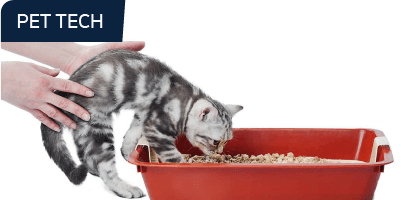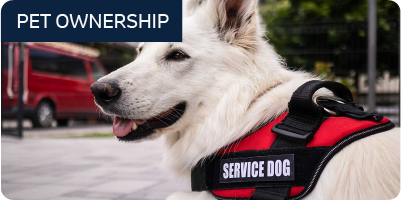
How long can you safely leave a cat alone?
Learn how long to leave kitty and how to make sure she’s safe in your absence
People who live with cats know that they’re not nearly as aloof or independent as alleged. Although cats don’t require daily walks like dogs, your presence matters to them… and not only because you have the ability to open a can, fill a water bowl, and clean a litter box.
Still, there may be times when you must leave your adult cat for overnight or longer. (Kittens younger than four months should not be left alone for more than four hours. Older than that, they can handle another hour or so. When they reach six months, they can tolerate an eight-hour day without company.)
The length of time you can leave a grown-up cat alone depends on the cat, his diet, and your environment. Cats who eat dry food that you can make readily available may be left on their own for 24-48 hours as long as fresh water is accessible as well. Beyond that time frame, water may get too dirty to drink and the litter box full.
To prepare for leaving your cat alone, take steps to make your absence as low stress on him as possible. This should include a conversation with your veterinarian.
Think about the weather
In summer and hot climates, keep kitty cool by leaving the air conditioning on. An unanticipated heat wave could have dire consequences.
Get an automated pet feeder
Sure Petcare offers a microchip pet feeder that exclusively opens for your microchipped cat and keeps food fresher. If your cat isn’t yet microchipped, find out about that here and also discover how Sure Petcare microchips help to reunite lost pets with their parents.
Leave plenty of water
Your cat needs to stay hydrated in your absence. Fill her regular water bowl before you leave and add extra bowls of fresh water around your home. Look into getting a pet water fountain. These aerate the water and their continual flow entices a cat to drink more often.
Add a second litter box
Without someone to scoop out the litter box, it will not only fill up faster but also will soon discourage your cat from using it, inspiring her to choose other places. By placing an additional litter box in your home and acquainting your cat with its location before you go, you reduce the likelihood of unauthorized deposits.
Provide home entertainment
Leave the radio or TV sound on so your cat won’t feel quite so alone. You may also want to treat him to a new high perch, scratching post, or cozy bed beside a window.
Adopt a cat companion
Well before your trip, consider adding a new cat to your household. Choose one that’s younger than your current cat and of the opposite sex. Having two will make your home less lonely for pets when you leave. But remember to give your new pet plenty of time – several months — to adjust before leaving her home alone.
Consider a cat sitter
When you have to be away from home for more than a night or two, having a cat sitter can take the worry out of a trip. This article for dog owners can help you determine how to find such a person and what to look for.
To help your cat sitter do the best job possible, prepare a dossier with pertinent information, including:
Your name and contact number
- Name of cat
- Feeding times
- When and where she eats
- Medication info, if required
- How often to change litter
- Personality traits
- Where she likes to hide and sleep
- Where to find supplies, including cat carrier
- Name and number of veterinarian
- Name and number of your emergency contact
It’s best if the sitter can come to your home because changes in environment can be stressful for cats. Tell your sitter how long you expect her to spend with the cat when she’s not attending to his immediate needs.
Also, a responsible sitter should contact you if she observes changes in your cat’s behavior, appetite, litter box habits, or grooming. And the best sitters of all will send you a photo and text every day to say your cat is doing just fine, but still misses you.
SureFeed® Microchip Feeder Connect is not intended to diagnose, cure, treat or prevent diseases or conditions and does not replace veterinary care.
More like this
- Top five ways to love your pet
 Your furry friend loves you unconditionally, so show your dog or cat that you love them right back
Your furry friend loves you unconditionally, so show your dog or cat that you love them right back - Choosing a litter box
 Fluffy is unique, so her litter box should be too. Make sure you’re choosing the right one.
Fluffy is unique, so her litter box should be too. Make sure you’re choosing the right one. - Could you raise a service dog?
 Interested in raising a service dog? Here’s what you need to know.
Interested in raising a service dog? Here’s what you need to know.





